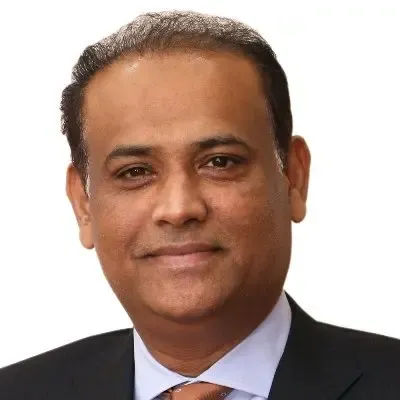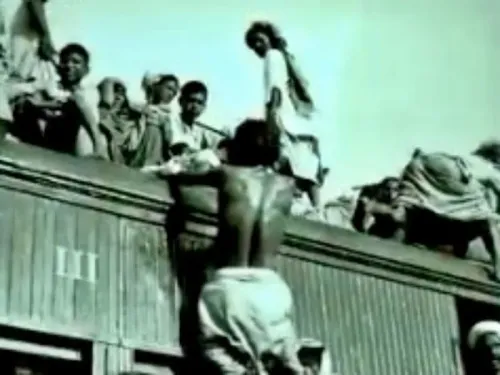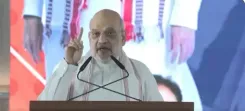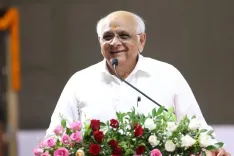What Did Union Minister JP Nadda Say About Terrorism?
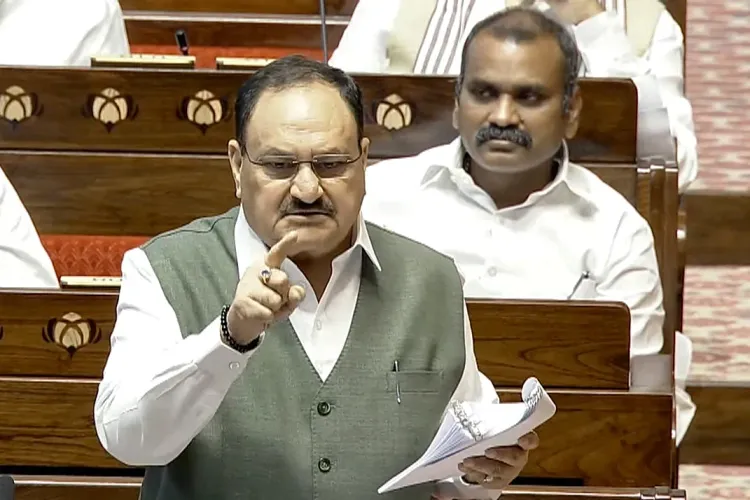
Synopsis
Key Takeaways
- Significant reduction in terrorist incidents under Modi government.
- Operation Sindoor exemplifies India’s decisive military action.
- Political leadership is crucial for national security.
- Global support for India's counter-terrorism efforts.
- Call for unity in the face of national challenges.
New Delhi, July 30 (NationPress) During the Rajya Sabha’s Operation Sindoor debate on Wednesday, Union Minister and Leader of the House Jagat Prakash Nadda made a striking comparison between the previous decade (2004-2014) and the current period (2014-2025), emphasizing India’s significant transformation in national security, military capabilities, and political resolve.
He stated that Operation Sindoor was executed with precision and strength, with nine terrorist camps, including those in Bahawalpur, Sialkot, and Muzaffarabad, being dismantled in a mere 22 minutes. He highlighted that the masterminds behind the Pahalgam terror attack were neutralized through coordinated efforts in Operation Mahadev and Operation Sindoor. Nadda pointed out that major terrorist organizations – Lashkar-e-Taiba, JeM, and Hizbul Mujahideen – were effectively eliminated during this decisive operation.
As the BJP national president, Nadda asserted that these military actions exemplified India’s operational prowess. For the first time under the Modi government, India proclaimed to the global community: “Terrorism and dialogue cannot co-exist.”
Nadda criticized the Congress-led governments from 2004 to 2014, citing their ineffectiveness in managing terror threats, with responses limited to diplomatic exchanges rather than decisive action. He revealed that there were 7,217 terrorist incidents from 2004 to 2014; however, this number sharply decreased to 2,150 from 2015 to 2025—a remarkable 85% reduction, according to Nadda.
He noted a 70% decrease in civilian fatalities (from 1,770 to 357), while terrorist casualties increased by 123%. Prior to 2014, stone-pelting incidents in Kashmir averaged 2,654 annually; now they are virtually nonexistent. He informed the Upper House that shutdown days in the valley have declined from over 130 to zero. The difference, he asserted, was rooted in political leadership.
Nadda recounted a series of attacks during the Congress era, from Jaunpur (2005) to the Mumbai attacks (2008). Despite significant casualties, he alleged that the Congress government continued trade agreements and cultural exchanges with Pakistan, failing to retaliate swiftly. Instead, he stated, India offered biryani and visas while enduring bombings, claiming: “Sweets were piled, while bullets streamed. Trade soared. They served biryani, we bled.”
In stark contrast, Nadda highlighted that under the Modi administration, India took decisive military action. He cited the surgical strikes following the Uri attack in 2016 and the Balakot airstrike after the Pulwama attack in 2019, reaffirming India’s readiness to protect its sovereignty. “Operation Sindoor executed targeted strikes on airbases and terrorist camps with zero civilian casualties,” he stated.
Nadda emphasized India’s shift towards self-reliance in defense, noting a transition from 32% self-reliance in 2014 to 88% today, utilizing indigenous systems such as BrahMos and Pinaka. He asserted that not a single terrorist survived the operations and no civilians were harmed, declaring this as “full-moon India—decisive, transparent leadership.”
He noted that the global community strongly supported India’s actions, with 61 leaders, including foreign ministers and heads of state, condemning the Pahalgam attack. Nadda referred to endorsements from organizations like UNSC, QUAD, and BRICS, stating that India is now regarded as a model for global defense.
Nadda also revisited the Indus Water Treaty, deeming it a historical blunder that conceded excessively to Pakistan while they sponsored terrorism. He noted that PM Modi’s administration has put the Treaty on hold, reiterating: “Blood and water cannot flow together.”
Throughout his address, Nadda asserted that political leadership is the defining factor in national security. He challenged the Opposition, demanding: “If you seek a discussion on Pahalgam, first consider what past leadership achieved.” He accused the Congress of appeasement politics and weakening anti-terrorism laws.
Nadda pointed out instances where Congress leaders referred to Hafiz Saeed with respect, ignored violations along the Line of Control, and prioritized electoral gains over national interests.
He called upon all members of Parliament to embrace the “Sindoor Spirit”—demonstrating Indian resolve, pride, and unity. He urged the Opposition to recognize this pivotal moment, contribute positively, and take pride in India’s progress, asserting that the nation transcends party lines—encouraging collective efforts to build a stronger Bharat.



